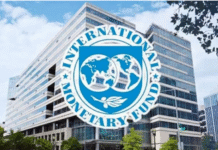The government has drafted a tobacco cultivation control policy that seeks to bar companies from encouraging farmers to grow the health hazardous crop.
The Tobacco Cultivation Control Policy 2017 drafted by the health and family welfare ministry also wants to restrict companies to provide tobacco growers with subsidies, loans or other supports.
It aims to bar cultivation of tobacco on public lands, particularly the leased-out lands.
“Tobacco cultivation does not contribute to the national development,” said the draft policy.
The government aims to rein in tobacco production as it wrecks havoc on public health and the economy.
Smoking kills nearly one lakh people every year in Bangladesh.
It alone causes an estimated economic loss of Tk 16,000 crore per year, equivalent to about 1.4 percent of gross domestic product, according to the World Health Organisation.
“We want to finalise the policy as soon as possible,” said a senior official of the health ministry.
The draft policy stresses restriction on plantation and processing of tobacco products within 500 yards of homesteads, and its cultivation within 150 yards of the slopes of rivers, canals and lakes.
The use of wood to process tobacco will also be restricted to prevent environmental degradation.
The policy also aim to increase production of food crops by freeing farmlands from tobacco cultivation, which rose to a 29-year high of 1.27 lakh acres in 2014-15.
Tobacco was cultivated on 1.15 lakh acres of land in 2015-16, according to Bangladesh Bureau of Statistics.
According to the draft policy, farmers will be provided with easy loans and special incentives for fertiliser, seeds and other farm inputs and equipment to help them switch from tobacco cultivation to other crops.
Farmers will also be extended support to market their food crops so they can get fair prices for their produce. The government also plans to establish cold storages at upazila levels.
The policy said through various measures, the tobacco cultivation area will be brought down by half between 2017 and 2026. Production of other crops will be increased on the same land.
Facilities would be developed in hilly areas to store crops such as ginger, turmeric, chili, banana, mango and pineapple, according to the draft policy.
The draft also stated a previous verdict of the appellate division of the Supreme Court that directed the government to take steps in phases to stop the production of tobacco leaves by way of giving subsidies to farmers, if possible.
It said various local and multinational companies are encouraging farmers to grow tobacco by supplying seeds, fertiliser and pesticides to them and also making promises to buy the leaves after the harvest.
Tobacco is grown mainly in northwestern Kushtia, Lalmonirhat, Nilphamari and Rangpur districts and southeastern hilly districts.
In absence of control, new areas are coming under tobacco cultivation which is squeezing the land for growing food crops, the draft said. Crops such as rice, wheat, pulse and oilseeds were grown in those lands.
Citing an estimate of tobacco cultivation on 51,950 hectares of land in 2013-14 by the Department of Agricultural Extension, the draft policy said 2.2 lakh tonnes of rice could be produced on the land.
The draft policy also focuses on creation of jobs opportunities for tobacco growers and seeks to impose VAT and higher supplementary duty on unprocessed tobacco and slap higher duty to discourage exports.
The draft says the National Tobacco Control Cell under the health ministry will coordinate actions among ministries to implement the policy.
It however may take some time to finalise the policy to give time to stakeholders so they can offer their views and recommendations, said the health ministry official.
In May, the ministry sought opinions from stakeholders on the draft policy, which comes after the government framed a law on controlling smoking and usage of tobacco products.
The law provides the scope to frame the policy to discourage tobacco production and consumption. The government wants to make Bangladesh a tobacco-free nation by 2040.
Source: The Daily Star










good